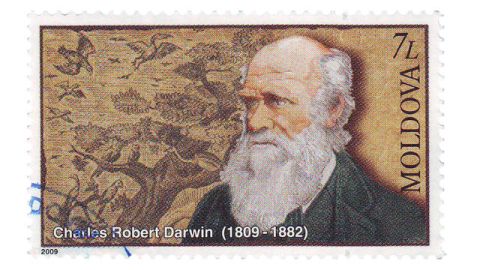How to Fix Your Misconceptions the Darwin Way

Some of our false beliefs are easy to correct. If you’re mistaken about how far the earth is from the sun, and someone you trust tells you the actual distance is about 93 million miles, you’d probably accept that. Likewise if you botch the meaning of “penultimate” in conversation and your friend pulls you aside, whispering that it means next to last—not, as you had assumed, super-duper ultimate. These are errors we will permit our brains to correct when faced with better information.
But the story is very different when we are ideologically or deeply attached to a certain belief, as Maria Konnikova reports in her New Yorker piece, “I Don’t Want To Be Right.” Neither “facts, science, emotions, [n]or stories could make people change their minds” if they were suspicious that childhood vaccinations caused autism, for example. Though the purported link has been thoroughly and repeatedly debunked, Dartmouth professor Brendan Nyhan found that parents already worried about autism could not be shaken from their belief.
“When there’s no immediate threat to our understanding of the world, we change our beliefs,” Ms. Konnikova writes. “It’s when that change contradicts something we’ve long held as important that problems occur”:
If someone held a contrary attitude, the correction not only didn’t work—it made the subject more distrustful of the source. A climate-change study from 2012 found a similar effect. Strong partisanship affected how a story about climate change was processed, even if the story was apolitical in nature, such as an article about possible health ramifications from a disease like the West Nile Virus, a potential side effect of change. If information doesn’t square with someone’s prior beliefs, he discards the beliefs if they’re weak and discards the information if the beliefs are strong.
Not the most hopeful finding for fans of human rationality. And there’s more: “Even when we think we’ve properly corrected a false belief, the original exposure often continues to influence our memory and thoughts.”
Charles Darwin presents us with a worthy model for how to deal with this particular frailty of the human mind. In this soul-baring, intimate, remarkable passage from The Descent of Man, he admits to the reader his tendency to mistakenly see a divine creator’s hand in nature despite explicitly disavowing God as the source of biological diversity. When looking at traits of various organisms, Darwin wrote, “I did not formerly consider sufficiently the existence of structures, which, as far as we can at present judge, are neither beneficial nor injurious.” He called this an “oversight”—a kink in the logical chain of his reasoning in Origin of Species. And here is his self-diagnosis, his explanation for his mistake:
I was not, however, able to annul the influence of my former belief, then almost universal, that each species had been purposely created; and this led to my tacit assumption that every detail of structure, excepting rudiments, was of some special, though unrecognised, service. Any one with this assumption in his mind would naturally extend too far the action of natural selection, either during past or present times.
I messed up, Darwin admits. I was hoodwinked by my own religious belief, a product of my childhood, to think that an all-powerful, beneficent creator had specially designed the blowhole for the dolphin, the cloaking device of the chameleon, the pouch for kangaroo. The idea of purposeful creation was so pervasive in society and so entrenched in his soul, Darwin wrote, that it continued to hold an influence over him even after he had concluded, based on his own extensive research and analysis, that it was false.
After this bout of self-criticism, Darwin concludes on a note of self-praise: “I have at least, as I hope, done good service in aiding to overthrow the dogma of separate creations.”
We aren’t Darwin, and few of us will be able to examine our misconceptions so calmly and cooly from arm’s length. Fewer of us will be able to pinpoint the cause of our intellectual error, whether it is our religious upbringing or our blind attachment to a political party. But Darwin is proof that if we look deeply into our beliefs and search our souls for ideological priors that may be skewing our judgments, self-correction can be undertaken. It’s also comforting to know that fundamental errors of reasoning can happen to the best of us.
Image credit: Shutterstock.com





